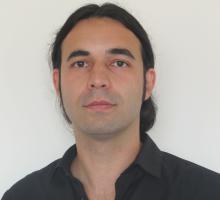Mini-Curso: Uncertainty Quantification in Computational Predictive Science
Mini-Curso | 18-20 de Junho 2018
Abstract:
Nowadays computational predictive models are standard tools for analysis of complex systems and phenomena. However, any computational model may be uncertain with respect to the system/phenomenon of interest, due to variabilities on its parameters and, mainly, because of assumptions made on its conception that may not be in agreement with the reality. The first source of uncertainty is inherent to measurements limitations, imperfections in manufacturing process, material and geometric variabilities, etc. Meanwhile, the second type is essentially due to lack of knowledge about the underlying governing laws. Uncertainty Quantification (UQ) can be thought of as a multi-disciplinary area that deals with quantitative characterization and reduction of uncertainties in applications, which is extremely necessary to give robustness to computational forecasts. The lectures will cover the basic vocabulary of UQ, the possible approaches to modelling uncertainties, the main techniques for uncertainty propagation. Basic topics of probability and statistics will be reviewed. Computer activities will be developed in parallel to theoretical expositions, as a way to give a hands-on tone to the course.
Contents:
Day 1:
Lecture 1: A Prime on Uncertainty Quantification
Tutorial 1: Verification and Validation
Lecture 2: Elements of Probability Theory
Tutorial 2: Probabilistic Warm-up
Lecture 3: Elements of Statistics
Tutorial 3: Statistical Analysis of Data
Day 2:
Lecture 4: Sampling and Monte Carlo Method
Tutorial 4: Monte Carlo in Action
Lecture 5: Probabilistic Modeling of Uncertainties
Tutorial 5: A Random Oscillator
Lecture 6: Stochastic Model Updating (probabilistic and non-probabilistic methods)
Day 3:
Lecture 7: Notions of Polynomial Chaos
Lecture 8: Bayesian Approach: a flavour
Lecture 9: Research Topics in UQ
Discussion
Schedule:
Monday (18/06) - Wendesday (20/06)
Start: 9h00 | 17h00
Team:
Prof. Américo Cunha
Assistant Professor of Applied Mathematics
Universidade do Estado do Rio de Janeiro (UERJ), Instituto de Matemática e Estatística.
Prof. Tiago Silva
Assistant Professor of Structural Mechanics
DEMI FCT NOVA, UNIDEMI
Prof. Alda Carvalho
Professor of Statistics
ISEL IPL
General information:
Location: Lab. Mecânica Estrutural (DEMI - Ed.VIII)
Bring your own Laptop with MatLab (or similar) for the hands-on exercises.
This is a free course. If you are interested send email to tan.silva @ fct.unl.pt
